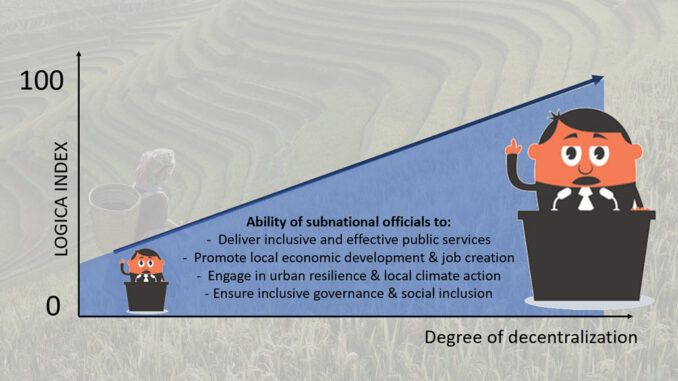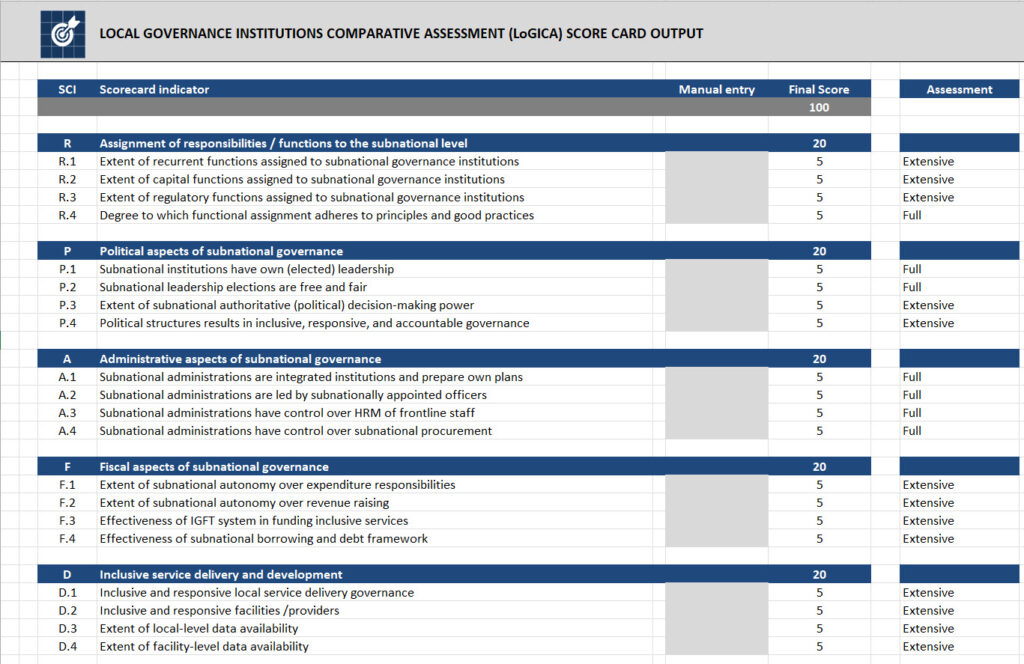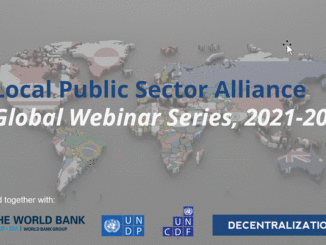
Local governments are not all the same. In fact, local governance institutions in different countries may be quite different in terms of their functional responsibilities; their political powers and arrangements; their administrative powers and arrangements; their fiscal powers and arrangements; and the inclusiveness and efficiency of service delivery arrangements.
This means that the ability of local officials to manage local affairs and serve local constituents can vary greatly across—and even within—countries. In some countries, mayors and other local leaders have a great deal of power, authority, and resources to manage their cities and local jurisdictions, while in other countries, mayors have little or no authoritative decision-making power over local affairs.
Unfortunately, very little is systematically known about the state of subnational governance institutions around the world. Although some datasets provide basic information about whether local governments exist and how much they spend, there is no global data set that provides a detailed overview of the state of subnational governance institutions in countries and regions around the world. Without such a data set it is impossible for countries to assess the extent to which their local leaders are empowered to improve the lives of their constituents in their countries.
The exact nature of subnational governance institutions is highly relevant for local politicians, local administrators, or advocates for local democracy and good local governance. In addition, the ability of subnational officials to manage local affairs has broad implications for global development efforts, including the inclusiveness and effectiveness of public service delivery; the ability of local leaders to promote local economic development and job creation; the ability of local leaders to promote urban resilience and champion local climate action; and the ability of local leaders to promote inclusive governance and social inclusion at the local level.
The Local Governance Institutions Comparative Assessment (LoGICA) framework—prepared by the Local Public Sector Alliance—is an attempt to fill this knowledge gap with respect to the nature of local governance institutions around the world.
As part of the LoGICA framework, the LoGICA Score Card provides an entry-level assessment of subnational governance institutions in a country.
A updated draft the LoGICA Score Card was recently released in an effort to ensure that the Score Card provides an insightful overview of subnational governance arrangements in a country. On the basis of 20 questions, the assessment team can gain initial insights into five key dimensions of subnational governance institutions in a country, including:

- the extent of their functional responsibilities,
- the extent of their political powers and authority,
- the extent of their administrative powers and authority,
- the extent of their fiscal powers and authority, and
- the extent of the inclusiveness and efficiency of subnational service delivery arrangements.
Since the LoGICA Score Card asks four questions about each dimension of subnational governance, worth five points each, each of these dimensions can receive a score between 0 and 20 points. In total, the maximum score of the LoGICA Score Card is 100 points, where a higher score implies a multilevel governance system where subnational governance institutions are more empowered in terms of functions, as well as political, administrative, and fiscal systems; and where service delivery arrangements are likely to be more inclusive and efficient.
Beyond the LoGICA Score Card, the LoGICA framework also contains a template for a LoGICA Country Profile, which captures detailed information about a country’s territorial-administrative organization and multilevel governance structure; about the assignment of powers and functions between government levels or administrative tiers; about the subnational political, administrative, and fiscal arrangements at each level; as well as about the inclusive nature of localized service delivery and development.
Given the important role that decentralization, multilevel governance and intergovernmental relations play in the functioning of the public sector, there are typically numerous stakeholders with a strong interest in better understanding (and strengthening) the multilevel or intergovernmental aspects of the public sector. These stakeholders typically include central government ministries (including the ministry responsible for local government or local development, but also the Ministry of Finance, as well as central sector ministries and other central stakeholder); local government officials and local government associations; public policy researchers at universities and research organizations; foundations, civil society organizations and other civil society stakeholders interested in promoting inclusive, community-led development; as well as regional or global development organizations.
Learn more about the LoGICA Framework at: http://decentralization.net/resources/logica-framework/



